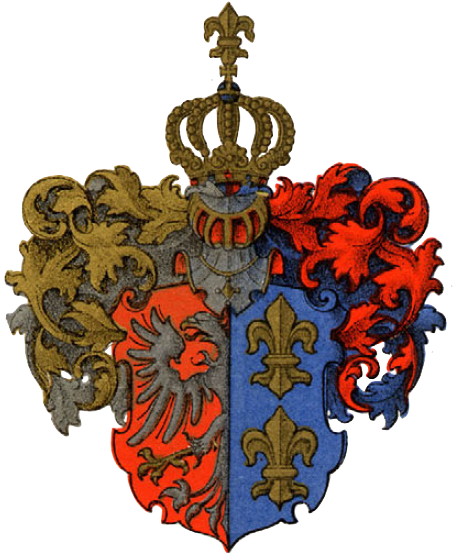Tchaikovsky's Descendant: Composer's Music Became an Integral Part of America

Denis von Meck speaks at UN headquarters after a tour of the Old World (Switzerland & France).
The great-great-great-grandnephew of Pyotr Ilyich Tchaikovsky and one of his main popularizers in the world, Denis von Meck, spoke at the UN headquarters in New York. Judging by his first statements outside the world’s main tribune, he himself "did not believe until the very end that this could happen." Prior to this visit, there were lectures in other countries, and more are planned in France next week. Attention to Tchaikovsky outside of Russia is not waning, and it can already be safely stated that attempts to somehow cancel the great Russian composer have not been successful. Immediately after the speech at the UN, "RG" spoke with the descendant of the genius composer.
Denis, reveal the secret, who invited you to the UN headquarters?
Denis von Meck: This is a real example of people's diplomacy. In Europe and the US, there are communities of people who love Tchaikovsky and who have connections in various international organizations. These people organized my tour of the old and new worlds, I gave a presentation in Switzerland, then flew via France to the US, and then I return to France, where I will again give lectures on Pyotr Ilyich to various audiences, including entirely French ones.
Thanks to kind people, lovers of Russian culture, I give talks in Russian houses, in educational institutions, in churches; and now - at the UN headquarters.
The Russian mission to the UN had booked a hall, where they invited all who would be interested. Quite a few people came. In addition to Russians, there were English-speaking attendees, and many asked questions following the lecture. My talk was titled "Tchaikovsky and America" and I conducted it in English.
Tchaikovsky was in America once, for twenty-five days, but I expanded this topic to include, based on historical facts, American attitude toward the composer that had developed fifteen years prior to his arrival, the plans he had for the future, and how important American figures of the day made this visit possible. I also spoke about how patronage and public diplomacy played a vital role in the culture of both the 19th and 20th centuries, and continue to play a role in the 21st.
Many Americans are still surprised to learn that the concert to celebrate the grand opening of Carnegie Hall in May 1891 was conducted by a maestro from Russia…
Denis, reveal the secret, who invited you to the UN headquarters?
Denis von Meck: This is a real example of people's diplomacy. In Europe and the US, there are communities of people who love Tchaikovsky and who have connections in various international organizations. These people organized my tour of the old and new worlds, I gave a presentation in Switzerland, then flew via France to the US, and then I return to France, where I will again give lectures on Pyotr Ilyich to various audiences, including entirely French ones.
Thanks to kind people, lovers of Russian culture, I give talks in Russian houses, in educational institutions, in churches; and now - at the UN headquarters.
The Russian mission to the UN had booked a hall, where they invited all who would be interested. Quite a few people came. In addition to Russians, there were English-speaking attendees, and many asked questions following the lecture. My talk was titled "Tchaikovsky and America" and I conducted it in English.
Tchaikovsky was in America once, for twenty-five days, but I expanded this topic to include, based on historical facts, American attitude toward the composer that had developed fifteen years prior to his arrival, the plans he had for the future, and how important American figures of the day made this visit possible. I also spoke about how patronage and public diplomacy played a vital role in the culture of both the 19th and 20th centuries, and continue to play a role in the 21st.
Many Americans are still surprised to learn that the concert to celebrate the grand opening of Carnegie Hall in May 1891 was conducted by a maestro from Russia…

Inauguration of Carnegie Hall in New York by Tchaikovsky, 1891
Denis von Meck: The area of Manhattan where the largest concert hall in the USA at the end of the 19th century was built, you could say was a suburb, and mostly carts drove around it. When they opened this building, they were afraid that no one would come, so they decided to attract the public's attention by inviting the most famous composer of the day. They chose Pyotr Ilyich, who was also a great conductor, and he agreed. Tchaikovsky was absolutely delighted with the reception he received and was surprised by how well his music was known and loved here.
In your observation, do Americans still choose Tchaikovsky today?
Denis von Meck: I would say that the music of Pyotr Ilyich Tchaikovsky has already become an integral part of musical America. For example, they say that residents of the southern states, where there is no snow at all, judge the approach of Christmas by how often fragments of "The Nutcracker" are broadcast on local radio and television. For another example, I looked at how much money Tchaikovsky's music brings to local ballet companies. It turns out that 65% of the annual income of a San Francisco company is revenue from "The Nutcracker". It is also worth recalling that on July 4, US Independence Day, Tchaikovsky's 1812 Solemn Overture is played.
Literally, on the eve of your speech at the UN, a decision was announced in Ukraine to demolish the monument to Tchaikovsky, as well as the monuments to Pushkin and the Decembrists... What is your reaction to this news?
In your observation, do Americans still choose Tchaikovsky today?
Denis von Meck: I would say that the music of Pyotr Ilyich Tchaikovsky has already become an integral part of musical America. For example, they say that residents of the southern states, where there is no snow at all, judge the approach of Christmas by how often fragments of "The Nutcracker" are broadcast on local radio and television. For another example, I looked at how much money Tchaikovsky's music brings to local ballet companies. It turns out that 65% of the annual income of a San Francisco company is revenue from "The Nutcracker". It is also worth recalling that on July 4, US Independence Day, Tchaikovsky's 1812 Solemn Overture is played.
Literally, on the eve of your speech at the UN, a decision was announced in Ukraine to demolish the monument to Tchaikovsky, as well as the monuments to Pushkin and the Decembrists... What is your reaction to this news?
Denis von Meck : Denis von Meck: This was expected. It is prime time to think about effective international mechanisms to protect culture from such treachery. These mechanisms could be at UNESCO, the Red Cross, the UN… It is necessary that the organization should have the ability, without taking a side in the conflict, to save cultural heritage, because it is irreparable once lost. Perhaps now, under the name of Tchaikovsky, is the time to try to develop tools to protect culture from political disagreements and military actions.
In the meantime, I'm afraid that the demolition of the Tchaikovsky monument is not the last thing that awaits us.
Denis, the monument you are talking about is located in one of two Ukrainian museums dedicated to Pyotr Ilyich Tchaikovsky. Tell us more about these places, because there is a feeling that everyone has already forgotten about them…
Denis von Meck: Both of these places are directly connected to my ancestors. It so happened that my ancestors were Tchaikovskys, Davydovs, and Von Mecks. One of my great-great-great-grandmothers, Nadezhda Filaretovna von Meck, who patronized Tchaikovsky for many years, had a huge estate in the town of Brailov near Vinnitsa. Pyotr Ilyich visited there more than once, and it was about this location that his cycle of violin pieces "Memory of a Dear Place" was written.
The P. I. Tchaikovsky and N. F. von Meck Museum was opened on the estate - it is a state museum. There was a good exhibition there. I corresponded with the museum for a long time, sent them books I produced, published articles about them...
The second place is The Literary-memorial Museum of A. Pushkin and P. Tchaikovsky in Kamenka. It was here that they decided to demolish the monuments to two world geniuses. This is also completely my family history on the Davydov line.

Tchaikovsky visiting Davydov's Kamenka / Extract from the archives of Denis von Meck.
What does Pushkin have to do with it?
The fact is that in Kamenka there was an estate of Vasily Lvovich Davydov, my great-great-great-great-grandfather, who headed the southern society of the Decembrists. The entire beau monde of cultural Russia came here to visit him. Alexander Sergeevich [Pushkin] also visited here many times, wrote poems and dedicated them to my ancestors.
He wrote a fair copy of "The Prisoner of the Caucasus", noting under the text: "23 Feb. 1821. Kamenka".
My three times great-grandmother Alexandra Ilyinichna Tchaikovskaya married Vasily Lvovich Davydov's son, Lev Vasilyevich, and went to live with him in Kamenka. Tchaikovsky regularly visited them there for 28 years. Moreover, this family was so close to Pyotr Ilyich that he considered their children his own.
I will quote a few lines from Tchaikovsky's letter to von Meck about Alexandra Ilyinichna: "I can say about them without exaggeration that they belong to a small number of the best people in the world. By the way, my sister, together with her husband, constitute a living refutation of the opinion that there are no absolutely happy marriages."
Actually, Pyotr Ilyich married off one of his nieces to the son of Nadezhda Filaretovna von Meck.
There is a large museum in Brailov, which houses the surviving estate. The grand piano that Pyotr Ilyich played has also been preserved. I hope.
Today, at various levels, people are looking for a solution that would help to fix the crumbling cultural bridges. Do you have your own recipe?
Denis von Meck: The formats can vary; the main thing is to understand that culture is sacred, and that politicians should not kick this sacred thing with their feet. Modern people who stoop to such things do not think about the future at all. I am talking about the future of all humanity. We must realize that thanks to ridiculous attempts to suffocate someone's culture, the cultural layer of planet Earth is violated. Therefore, I repeat: the world community must think about how to protect cultural heritage and how to strengthen and reinforce existing cultural ties. Postponing the solution of these issues any longer, in my opinion, is simply tragic.
Your educational trips strengthen just such connections. Will they continue or is your current tour a one-off event?
Denis von Meck: Suffice it to say that I am home in Moscow only one week a month, the rest of the time I am on the road, and I am invited more and more often. To be frank - there is a queue for lectures on Tchaikovsky and Russian culture in a number of countries. Here I must say a huge thank you to my family, who gives me the opportunity to go on long trips and understands the necessity of what I do.
Let me remind you that Pyotr Ilyich will be 185 years old on May 7. My schedule already includes visits to 35 cities in Russia and abroad. As for the USA, Tchaikovsky and I will return here soon.
Denis von Meck - is a direct descendant of the von Mecks, Tchaikovskys, and Davydovs families, a public figure, cultural volunteer, and curator of a virtual museum www.von-meck.info, collector, publisher, genealogist, publicist, researcher of Tchaikovsky's life and work, International director of the Russian Musical Society, member of many cultural, historical societies in Russia & worldwide
The fact is that in Kamenka there was an estate of Vasily Lvovich Davydov, my great-great-great-great-grandfather, who headed the southern society of the Decembrists. The entire beau monde of cultural Russia came here to visit him. Alexander Sergeevich [Pushkin] also visited here many times, wrote poems and dedicated them to my ancestors.
He wrote a fair copy of "The Prisoner of the Caucasus", noting under the text: "23 Feb. 1821. Kamenka".
My three times great-grandmother Alexandra Ilyinichna Tchaikovskaya married Vasily Lvovich Davydov's son, Lev Vasilyevich, and went to live with him in Kamenka. Tchaikovsky regularly visited them there for 28 years. Moreover, this family was so close to Pyotr Ilyich that he considered their children his own.
I will quote a few lines from Tchaikovsky's letter to von Meck about Alexandra Ilyinichna: "I can say about them without exaggeration that they belong to a small number of the best people in the world. By the way, my sister, together with her husband, constitute a living refutation of the opinion that there are no absolutely happy marriages."
Actually, Pyotr Ilyich married off one of his nieces to the son of Nadezhda Filaretovna von Meck.
There is a large museum in Brailov, which houses the surviving estate. The grand piano that Pyotr Ilyich played has also been preserved. I hope.
Today, at various levels, people are looking for a solution that would help to fix the crumbling cultural bridges. Do you have your own recipe?
Denis von Meck: The formats can vary; the main thing is to understand that culture is sacred, and that politicians should not kick this sacred thing with their feet. Modern people who stoop to such things do not think about the future at all. I am talking about the future of all humanity. We must realize that thanks to ridiculous attempts to suffocate someone's culture, the cultural layer of planet Earth is violated. Therefore, I repeat: the world community must think about how to protect cultural heritage and how to strengthen and reinforce existing cultural ties. Postponing the solution of these issues any longer, in my opinion, is simply tragic.
Your educational trips strengthen just such connections. Will they continue or is your current tour a one-off event?
Denis von Meck: Suffice it to say that I am home in Moscow only one week a month, the rest of the time I am on the road, and I am invited more and more often. To be frank - there is a queue for lectures on Tchaikovsky and Russian culture in a number of countries. Here I must say a huge thank you to my family, who gives me the opportunity to go on long trips and understands the necessity of what I do.
Let me remind you that Pyotr Ilyich will be 185 years old on May 7. My schedule already includes visits to 35 cities in Russia and abroad. As for the USA, Tchaikovsky and I will return here soon.
Denis von Meck - is a direct descendant of the von Mecks, Tchaikovskys, and Davydovs families, a public figure, cultural volunteer, and curator of a virtual museum www.von-meck.info, collector, publisher, genealogist, publicist, researcher of Tchaikovsky's life and work, International director of the Russian Musical Society, member of many cultural, historical societies in Russia & worldwide
What we can do
- A lecture in your location.
Always for free. - Long term cultural cooperation. Online and/or offline.
- Rewarding performers of Tchaikovsky's music
For cooperation please contact directly
Denis von Meck
Denis von Meck
Phone: +7-985-233-65-25 (WhatsApp, Telegram, WeChat)
All-in-one: taplink.cc/denisvonmeck
Email: info@von-meck.org
All-in-one: taplink.cc/denisvonmeck
Email: info@von-meck.org
